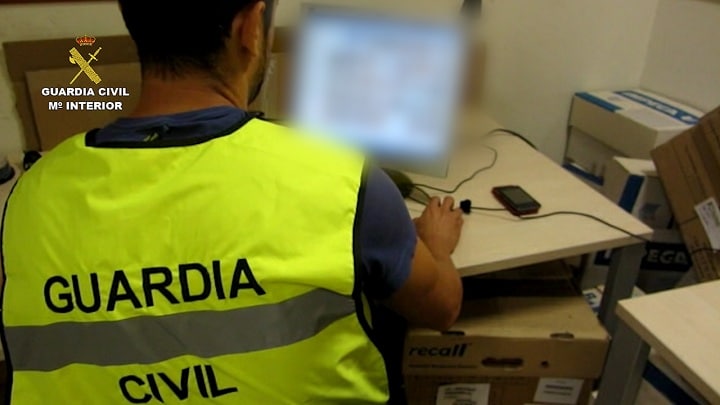The 4NSEEK project was launched on 1 January and covers advanced police recruitment, technological development of forensic tools, and raising awareness and distributing materials aimed at children.
The fight against cybercrime and sexual offences against minors is pitted against international mafias with sophisticated technology operating in different countries.
That is why international cooperation is essential in fighting these abhorrent crimes.
The National Cybersecurity Institute (INCIBE), which depends on the Ministry of Economy and Business through the Secretary of State for Digital Progress, has begun coordinating a new European project against cybercrime and children.
The initiative will be launched in the next two years under the name “Forensic Against Sexual Exploitation of Children – 4NSEEK” (4nseek.incibe.es) with the participation of partners such as the Ministry for Home Affairs (National Police and Civil Guard), Malta Police, the University of León, the University of Malta, the University of Groningen (Netherlands) and the Portuguese Association for Victim Support (APAV).
The idea of the entities behind the project is to seek collaboration with other European police forces to gain effectiveness in the fight against this type of crime.
“This crime has two variables; sexual abuse of children in itself and, in parallel, the distribution of pornographic content on the Internet. We must explain that merely possessing this material is also criminal”, explains Juan Díez, R&D+i coordinator at INCIBE.
The role of INCIBE is to support state security forces in the fight against this blight; “We help them in the cyber component of the crime, in other words, the active detection of these child sex abuse cybercrimes. We provide tools and in some investigations we have been required to advise on this type of crime.”
The most recent precedent for this European programme is another initiative involving INCIBE, ASASEC, with the aim of including innovative improvements based on the needs of the police forces involved, reinforced by scientific research from participating universities.
“In this project we have created a technology to help the police do their work detecting these contents.”
Although this European project came to an end, INCIBE has continued working along the same line.
“The tool has been perfected and our police actively use it, especially when they enter a suspect’s home and confiscate various devices. The tool rapidly detects whether they contain illegal pornographic content. This means that officers can make arrests on the spot with clear evidence,” he comments.
Now, Forensic Against Sexual Exploitation of Children–4NSEEK” (4nseek.incibe.es) maintains this technological collaboration and goes one step further.
“We are also working on international police collaboration in the fight against child abuse and the distribution of content on the Internet; training police and tax authorities in the latest techniques and regulations in fighting this cybercrime; and raising awareness with specific materials for children, teenagers, families and teachers.”
The public agency INCIBE leads this working group, and is responsible for organising meetings with partners and reporting progress to the European Union.
“The quantity of information on the Internet is overwhelming. An officer cannot review all that content on their own. The visualisation process is undertaken from a computer with a greater magnitude than the human eye, with a good degree of effectiveness in selecting those contents,” says Juan Díez.
